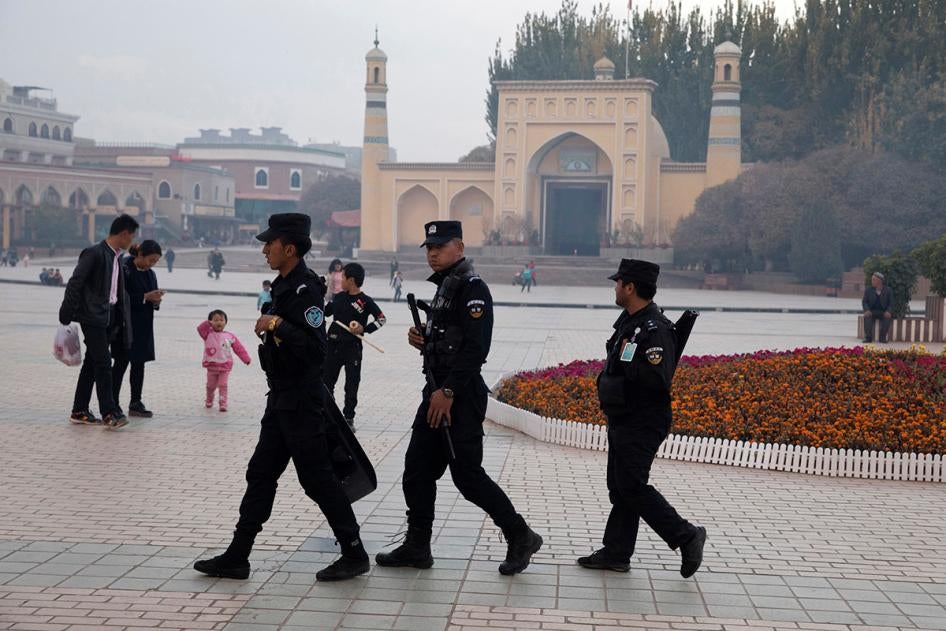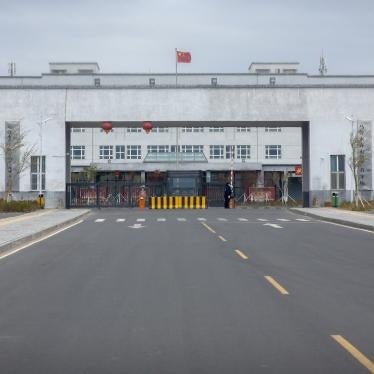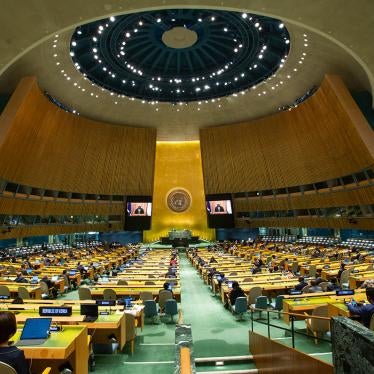On the last day of August, a long-awaited United Nations report on Beijing’s alleged abuses against Uyghurs in the Xinjiang region confirmed that the Chinese government’s campaign to combat what it describes as extremism and terror threats in the region amount to “serious human rights violations” with “a discriminatory component.” These abuses could constitute crimes against humanity.
Since at least 2016, Beijing’s “Strike Hard Campaign” in Xinjiang has included the mass arbitrary detention of more than a million Uyghurs and other Turkic Muslims, while subjecting many to torture, surveillance, forced labor and cultural persecution. Not even children are safe; Chinese authorities have reportedly placed the children of those detained in state-run child welfare institutions and boarding schools without parental consent or access.
The government’s use of high-tech, artificial intelligence-assisted policing has subjected 12 million Turkic Muslims to “suffocating” levels of surveillance, effectively using technology to criminalize legal behavior. Credible reports about the government’s destruction of Islamic religious sites, including mosques, shrines and cemeteries, signal a broader effort to erase religious and cultural history.
The UN report reflects the scope and severity of the abuses, drawing on many of the Chinese government’s internal documents, laws, policies, data and policy statements, as well as testimony from survivors. The report’s rigor – in contrast to Beijing’s knee-jerk denials – raises the stakes for the whole UN system to respond.
With representatives from 47 countries now gathered in Geneva for the new session of the UN Human Rights Council, now is the moment to do so. The report should be formally presented to the Human Rights Council as a matter of priority, so that governments can discuss the report’s findings and take the steps needed – including a formal UN probe, as has been recommended by many UN independent experts – to implement its recommendations and investigate further.
By now, Beijing’s playbook to thwart human-rights scrutiny is well-known. The Chinese government has sought to manipulate the inner workings of the United Nations’ human rights functions, and it has harassed and threatened human rights defenders from China, UN human rights experts and UN staff while blocking the participation of independent civil society groups.
These efforts to rewrite international norms minimize scrutiny of its conduct, and its significant influence on the global stage has effectively given other governments license to do the same. Chinese authorities have gone to extraordinary lengths to stop what is happening in Xinjiang from being exposed, including jailing and intimidating those who attempt to communicate through social media or messaging apps to family or friends outside China.
That the UN Office of the High Commissioner for Human Rights published the report only after many months of repeated delays and just minutes before the official end of the term of Michelle Bachelet, the former United Nations high commissioner for human rights, is suggestive of the intense pressure by Chinese officials to bury the findings, as reported by Reuters.
But global concern for the Chinese government’s brutal rights record, including in Xinjiang, is growing – even in the face of Beijing’s typical threats of retaliation. In June, a cross-regional group of 47 countries, including Canada, issued a stinging public statement around their “grave concerns about the human rights situation in China, especially in Xinjiang,” as well as in Hong Kong and Tibet. And while China again won re-election in 2020 for a three-year term on the Human Rights Council, it received the fewest votes of the 15 countries elected, and 41 fewer votes than the last time it won a seat.
A formal UN investigation into the abuses would create an umbrella under which UN member states could work together that would be essential to blunting Beijing’s threats, while strengthening the very system of multilateralism currently under attack. Co-ordinated and sustained international concern is also critical to challenging the Chinese government’s seeming expectation of impunity for itself and its allies, just because of its diplomatic and economic might.
UN Secretary-General Antonio Guterres’s initial endorsement of the report, after months of citing the UN high commissioner’s independence to justify his untenable silence, is a good first step. But it is not enough. The moral authority inherent in his role as the chief steward of the entire UN system requires not only his full-throated defence of the report’s contents, but also his leadership in pressing governments to implement its recommendations and advocate for a UN investigation on the ground.
After all, the violations in Xinjiang are still occurring. With its arsenal of blanket surveillance, artificial intelligence, mass incarceration, misinformation campaigns and diplomatic strong-arming, the Chinese government is laying a blueprint for harnessing its full power to stamp out an ethnic and religious identity. But the evidence is now in front of those who can do something about it – and they should.










